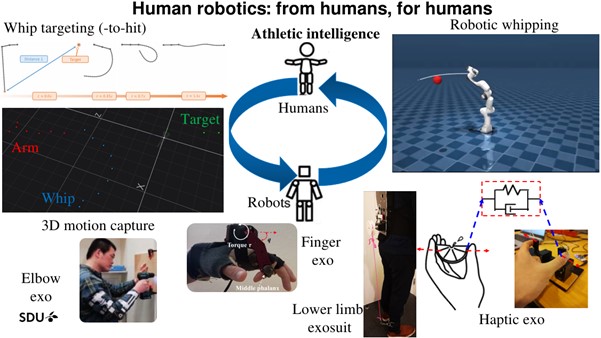This program has a flexible start and length
Preferred student profile
Academic study field:
Bachelor/Master student in Robotics, Bioengineering, Biomechanics, Neuromechanics, Computer Science, Mechatronics, Mechanical Engineering, Electrical Engineering, Kinesiology, Computer Engineering, Artificial Intelligence, Autonomous systems, Physics, or other closely related fields.
Background / Interest:
• Autonomous-lifelong learning for robotic systems
• Bio-inspired robotics,
• Neuromechanical modeling
• Biomechanical experiments
• Bio-signal processing
• Embodied artificial intelligence
• Machine learning for robotics
• Neural learning/plasticity and memory
• Embodied cognitive systems
• Explainable artificial intelligence (XAI)
• Exoskeletons
• Human robotics
• Human-machine interaction
Maximum number of students to host: 5
Description
The capability to interact physically with complex environments is a hallmark of humans, such as arm manipulation of flexible tools (e.g., whips). How they handle neural, muscle, and tool complexities remains an interesting and open question. In SDU ENS lab, 3D motion capture and modeling, as well as robots are utilized and developed to decode neuromuscular control underlying complex motor skills. Computational models and theoretical experiments are integrated into this project, where Robotics and Neuroscience can mutually benefit from. The project pushes the knowledge boundary from slow and simple to fast and complex manipulation control of humans. Besides, the resulting models and methods can be extended for wearable robot control and designs, e.g., exosuits, prosthetic arms and legs.
Applicants will define a tailored project with us, e.g., by referring ours. The valuable outcomes of the project will be presented in high-rank internationally recognized conferences and journals.
